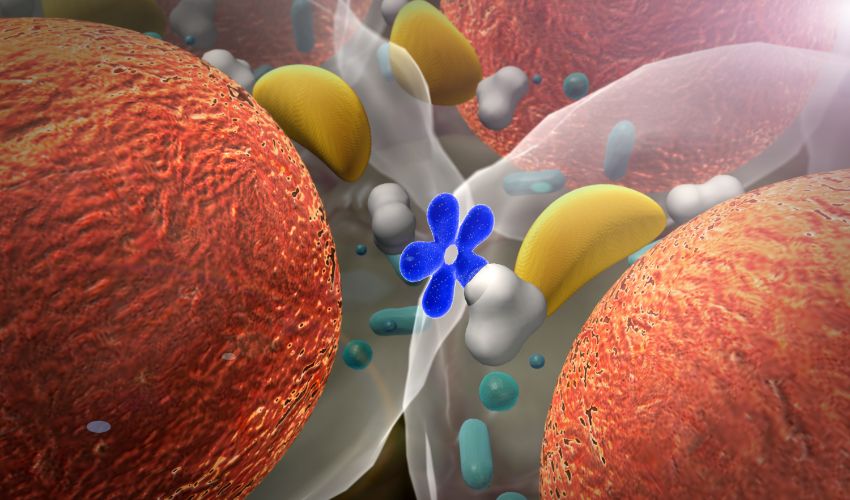Hormones are essential chemical messengers produced by the endocrine system. They travel through the bloodstream to various organs and tissues, where they bind to receptors and trigger specific actions. Hormones play a crucial role in regulating various bodily functions such as metabolism, growth and development, reproduction, and mood. The body’s hormone balance is delicate, and any imbalance can cause a range of health problems.
Types of Hormones:
There are many different types of hormones produced by the endocrine system. Some of the most important ones include:
- Insulin – Regulates blood sugar levels
- Estrogen – Controls female reproductive functions
- Testosterone – Controls male reproductive functions
- Thyroid Hormones – Regulates metabolism
- Cortisol – Controls stress response
Each type of hormone has a specific function and works in conjunction with other hormones to maintain the body’s balance.
Functions of Hormones:
Hormones play a critical role in the body’s functioning. They regulate various bodily processes, such as:
- Regulation of metabolism: Hormones such as insulin and thyroid hormones play a crucial role in regulating metabolism. Insulin helps the body use and store glucose, while thyroid hormones regulate the body’s metabolic rate.
- Control of growth and development: Hormones such as growth hormone, estrogen, and testosterone play a vital role in controlling growth and development in children and adolescents.
- Regulation of the reproductive system: Hormones such as estrogen, progesterone, and testosterone control the reproductive system in males and females.
- Maintenance of electrolyte balance: Hormones such as aldosterone regulate the balance of electrolytes such as sodium and potassium in the body.
- Control of stress response: Hormones such as cortisol help the body respond to stress by increasing blood sugar levels, suppressing the immune system, and increasing blood pressure.
Common Hormonal Imbalances:
Hormonal imbalances occur when there is too much or too little of a particular hormone in the body. Some of the most common hormonal imbalances include:
- Hypothyroidism – Low levels of thyroid hormones
- Hyperthyroidism – High levels of thyroid hormones
- Diabetes – Insufficient insulin production
- Polycystic Ovary Syndrome (PCOS) – Excess production of androgens
- Adrenal Fatigue – Insufficient production of cortisol
These imbalances can cause a range of health problems, including weight gain, fatigue, mood swings, and infertility.

Maintaining a Healthy Hormone Balance:
Maintaining a healthy hormone balance is crucial for overall well-being. Here are some tips to keep your hormones balanced:
- Eat a balanced diet with plenty of fruits, vegetables, and whole grains. Avoid processed and sugary foods that can cause insulin spikes.
- Exercise regularly to help regulate hormones such as insulin and cortisol.
- Get enough sleep to allow your body to produce hormones such as growth hormone.
- Manage stress effectively by practicing relaxation techniques such as meditation or yoga.
- Avoid exposure to endocrine-disrupting chemicals found in household cleaning products, plastics, and pesticides.
FAQs:
What causes hormonal imbalances?
Hormonal imbalances can be caused by various factors such as genetics, stress, medications, and medical conditions.
How can I know if I have a hormonal imbalance?
Symptoms of hormonal imbalances vary depending on the type of hormone and can include weight gain, fatigue, mood swings, and irregular periods.
Can hormonal imbalances be treated?
Yes, hormonal imbalances can be treated with medication, lifestyle changes, and hormone replacement therapy.
Can stress affect hormone levels?
Yes, stress can cause hormonal imbalances, especially cortisol, which is the hormone that regulates stress response.
What are some natural ways to balance hormones?
Natural ways to balance hormones include eating a balanced diet, exercising regularly, getting enough sleep, and managing stress effectively.

Conclusion:
Hormones are vital for the body’s functioning, and any imbalance can cause a range of health problems. Understanding the different types of hormones, their functions, and how to maintain a healthy hormone balance can help you prevent or manage hormonal imbalances. By following a healthy lifestyle and seeking medical treatment when necessary, you can maintain optimal hormone balance and lead a healthy, fulfilling life. It’s essential to listen to your body and be aware of any changes in your physical or emotional health. If you suspect a hormonal imbalance, it’s best to seek medical advice and get the necessary treatment. Remember, maintaining a healthy hormone balance is crucial for overall well-being.






















